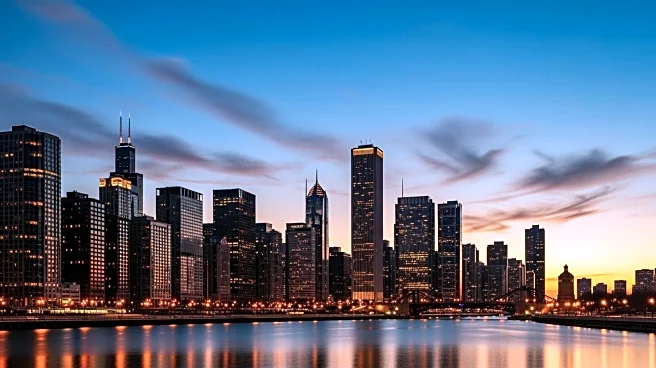What's Happening?
Gaelic Park in Oak Forest recently hosted the 2025 International Famine Commemoration, an event dedicated to remembering the Irish Great Famine of the 1840s. The commemoration featured speeches from dignitaries,
musical performances, and a wreath-laying ceremony. Patrick O'Donovan, Ireland's Minister for Culture, Communications, and Sport, served as the keynote speaker, emphasizing the lasting impact of the famine and the treatment of the Irish by the British government during that period. The event attracted over 400 attendees and took place in front of the Gaelic Park Memorial bronze statue, a symbol of the Irish journey and resilience.
Why It's Important?
The commemoration serves as a reminder of the historical suffering endured by the Irish people and the subsequent diaspora that shaped communities worldwide, including in the United States. It highlights the contributions of Irish immigrants to American society, particularly in cities like Chicago, where their labor helped build the city's infrastructure. The event underscores the importance of acknowledging historical injustices and the role they play in shaping current relationships between nations. It also reflects on the progress made in Irish-British relations, while stressing the need to remember past atrocities to prevent future occurrences.
What's Next?
The commemoration may inspire further educational initiatives and cultural events aimed at preserving the memory of the Great Famine and its impact on Irish and global history. It could also lead to increased dialogue between Ireland and the United States regarding historical and cultural ties. As the relationship between Ireland and Britain continues to evolve, events like this may play a role in fostering understanding and reconciliation, while ensuring that historical lessons are not forgotten.
Beyond the Headlines
The event highlights the ethical responsibility of nations to confront and acknowledge historical wrongdoings. It raises questions about how societies remember and teach history, and the importance of cultural heritage in shaping national identity. The commemoration also serves as a reminder of the resilience of immigrant communities and their contributions to their adopted countries, offering a broader perspective on the immigrant experience and its significance in shaping diverse societies.








